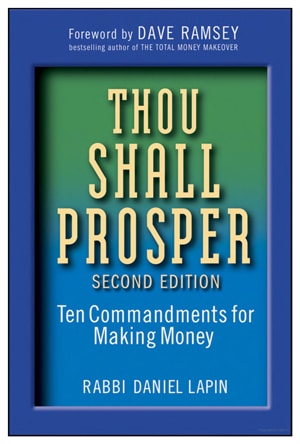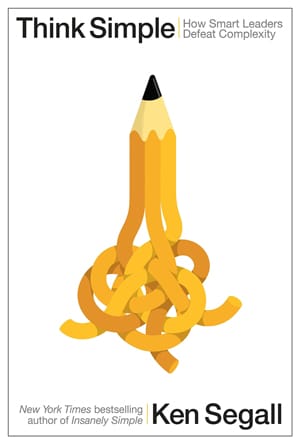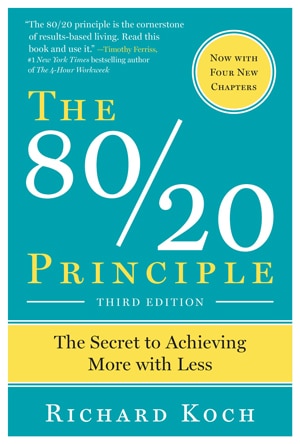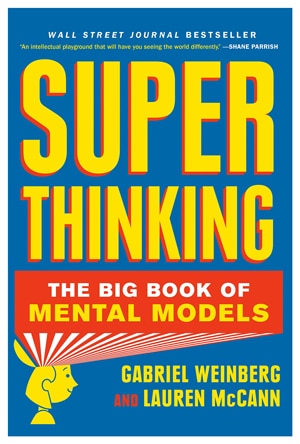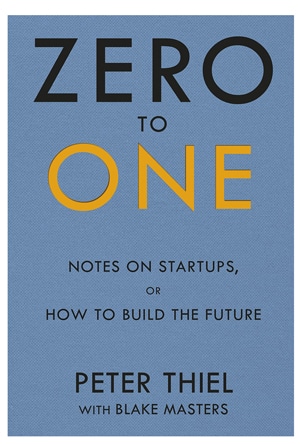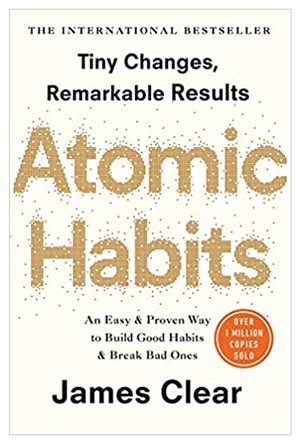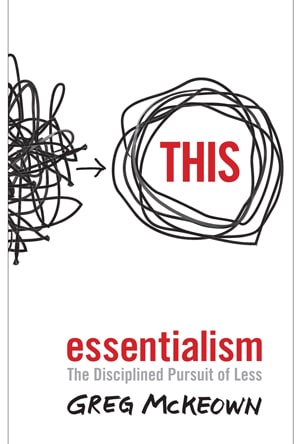The Ultimate Guide to Coach
Wellness Experts
About The Author
Siddharth Rajsekar
Founder - Internet Lifestyle Hub
Siddharth Rajsekar aka Sidz is the founder of the Internet Lifestyle Hub, one of the world’s largest communities for coaches, trainers, teachers, and experts with over 20,000 members.
As an acclaimed lifestyle entrepreneur, Business World's 40 under 40 award winner, and international speaker, Siddharth has trained over 500,000 people in the last 10 years. Recognized as one of India’s leading and sought-after “info-marketing” specialists, Siddharth has worked closely with renowned International experts like Robert Kiyosaki, T Harv Eker, Tony Robbins, Brian Tracy, and Jack Canfield.
After running many multi-million-dollar online campaigns for companies and helping people make money online in the last 10 years, Siddharth has developed and perfected the Freedom Business Model. The Freedom Business Model focuses on helping people take their expertise online and building a super-profitable digital coaching business, without an office or employees.

His mission is to reform the education and employment system by building a new breed of Digital Leaders, based on the core principles of humanity and simplicity and by enhancing one’s social skills, happiness, and overall productivity.
He is the author of this book, “You Can Coach” which decodes all the steps for experts to successfully PLAN, LAUNCH, and GROW a digital coaching business to six figures a month. Wearing multiple hats, Siddharth is a husband of a loving wife, a father of 2 boys, a minimalist, futurist, spiritualist, a YouTuber who has published over 300 videos, as well as a podcast host!
1. Are You Cut Out To Be A Coach For Wellness Experts
Why is everyone talking about wellness these days? Wellness is a word used to describe the state of being in good health, both physically and mentally. Wellness experts have become more popular because of a growing interest in self-care and holistic health.
With more people focusing on their health and fitness, the term "wellness" has recently gained popularity. People with health problems prefer to consult specialists who have in-depth knowledge, skill, and expertise in a specific area of wellness and offer clients high-quality, targeted solutions. Modern life is fast-paced and demanding, so people are looking for ways to improve their physical and mental health and find balance in their lives.
Many people are looking for ways to help themselves and their loved ones through these difficult times. Physical and mental wellness coaching is more important than ever at a time when we are all feeling the effects of fear, mistrust, and uncertainty.
As a coach to wellness experts, the first thing to do when someone wants to learn something new is to ask them what they want from this experience. Some people just need a few pointers, while others may want more of an instructional course with videos and
e-books included in the package.
If you have always wanted to teach others what you know, and if you can teach this skill to someone else, they, in turn, can help others develop their skill set!
There is a good chance that if you are reading this, you have thought about working as a coach for wellness professionals. This career can be very rewarding and profitable for those who work hard to achieve it.
The role of the wellness coach has been growing in popularity over the last decade. With more and more people becoming interested in personal development, it's no wonder that this job is seeing an increase in demand. But what does it take to be a coach? What kind of person should you be?
A coach is someone who trains and mentors new coaches. They offer guidance, insight, and wisdom to those who aspire to be successful in this competitive field. If you are considering a career as a coach to wellness experts, here are some questions you should ask yourself before leaping:
Do I have an established network of contacts?
What's my experience with coaching people?
Am I prepared for the initial investment costs that come with starting any business?
It’s one of the higher-paying online income sources, but it takes time to build credibility and experience to be successful. Whichever path you decide to take, remember the value of your experience, and don’t neglect this great way to make a career.
You have to be able to connect with people, get them excited about the possibilities of coaching, and encourage them to take action immediately so they can start their journey. It takes more than being knowledgeable in your field; you also need to have charisma and the ability to inspire If you're interested in training others on how to become wellness coaches themselves, then read on for three things that will help prepare you for this rewarding career path.
A typical experience knowledge giver, or coach, is an experienced and skilled professional who takes on the task of giving experience to others.
People who choose knowledge-giving professions tend to have been successful at some other line of work before turning to knowledge-giving as a profession, so they can feel satisfied knowing that these experiences serve another purpose.
Successful wellness experts have learned to use social media platforms to share their success stories and tips for healthy living, which can encourage others to adopt similar practices. They have adopted the concept of simplifying complex healing techniques into simplified formulas.
A general wellness program might not be effective for someone with a specific health condition, such as diabetes or chronic pain. However, a micro niche that focuses on managing those specific conditions can provide more personalized and effective solutions and might focus on a specific aspect of wellness, such as meditation for stress relief.
Coaches have helped wellness experts create programs so people can decide to learn the subject, follow the steps sequentially, and transform their lives financially. In turn, when a client comes for help, they follow the programs. With personalized advice and a supportive approach, wellness experts are helping individuals achieve their health goals and live happier, healthier lives.
These specialists provide people with personalized advice and support to help them achieve their health goals. Often, they also indicate a holistic approach to health. Wellness experts address not only physical well-being but also mental and emotional health.
There are several reasons why micro niches are important in the wellness industry. Firstly, they allow businesses to stand out in a crowded market. By focusing on a specific niche, businesses can differentiate themselves from their competitors and appeal to a smaller, but more targeted audience. So we have a nutrition expert. You're a detox expert. You're a meditation expert. Maybe you're an expert in a particular kind of meditation technique and then you're known for that microniche, postures, intermittent fasting, mindfulness, crystal healing, and chakras. The list can go on and on. If you are in the health and wellness space, as a lifestyle-disease specialist you help people reverse diabetes. You can talk about all the concepts. How does diabetes come about? What are the lifestyle habits that cause it? How does the body work? How do you measure your blood sugar in the body? What are the food habits? What are the things that cause it? And then you can get into the solution part of it, like, how do you solve it?
However, these experts need coaches to help them achieve their personal and professional goals.
Why wellness experts need coaches?
Accountability:
Coaches help to keep wellness experts accountable for their goals and commitments. They provide support and encouragement, making it easier for wellness experts to stay focused and motivated. Coaches also help identify areas of improvement and develop strategies to overcome challenges.
Guidance and mentorship:
Wellness experts often work with clients, and it can be challenging to find time for personal development. Coaches help identify areas of growth and provide guidance on how to achieve personal and professional goals. They also offer advice on how to manage clients effectively and build a successful business.
Perspective:
Perspective. As wellness experts try to grow their clientele, it can be challenging to see things objectively. Coaches provide an outside perspective and challenge the expert's assumptions, helping them gain new insights and ideas. This fresh perspective can be invaluable in developing new programs, products, and services.
Most coaches want to make a difference. But it's important to let people know that you have the processing skills to help people deal with their stuck places and that you will help them identify and release limiting beliefs. The two things that stop people more than anything are that they either have limiting beliefs that they're not aware of or they have fear.
Sometimes it's just a lack of knowledge, a lack of know-how, a lack of skill sets, or a lack of a proper mindset. One needs to be good at those things to help people break through and have these transformational moments. If, as a coach, you ask your students a series of questions that lead them to an "aha" moment, you will have achieved your goal.
Walk the talk:
Walk the talk: If you have successfully understood the principles that you are teaching, you are allowed to speak with authority about them. You have to be living the truth that you are coaching about. So if you're teaching people, they need to be 100 percent responsible for their lives. Not blame, not complain, and not make excuses. You must be living that because your vibration, your truth, will be transmitted to others as you speak. If you're just teaching something you read about in a book, that comes through to people. They can tell that.
Empathy and Understanding:
One of the most essential qualities of a coach is empathy and understanding. As a coach, you should learn how to walk people through a sequence that includes getting in touch with their life purpose. A coach should be able to put themselves in their client's shoes and understand their struggles, fears, and aspirations. A good coach will take them through the sequence of clarifying their life purpose, creating a vision that's aligned with fulfilling that purpose, setting specific goals, and learning about affirmations and visualization. They should be able to provide a safe space for wellness professionals to share their work and ideas without fear of judgment or criticism.
Self- Awareness:
Self-Awareness You have to come from a place of service. Your clients shouldn’t have to wonder, "Are you in this for yourself?" "Or are you in this for me?” Aspiring professionals will want to know that you really care about them and that you're there to support them in being successful.
A coach to wellness experts should not be teaching something they haven't experienced first. Your role is to guide and mentor them on their journey to becoming successful wellness experts.
Nurturing:
A coach should have a positive attitude and be able to motivate their clients to overcome obstacles and reach their goals. They should be able to provide encouragement, praise, and support that can boost their clients' confidence and inspire them to keep aiming for success. A coach who can create a positive and motivating environment can help your students stay motivated.
Strong communication skills (both verbal and nonverbal).:
-Strong communication skills (both verbal and nonverbal). Effective communication is essential for a coach to be able to convey their ideas and feedback to their clients. Be articulate, and learn how to communicate your concepts in a way that resonates with your students. You should be able to take complex ideas and explain them in a very easy-to-understand way using metaphors and stories.
A coach should be able to provide constructive criticism in a way that is clear, respectful, and actionable. They should also be able to listen actively to their clients' concerns and questions and provide relevant answers and guidance: A good coach should be an excellent communicator. They should be able to listen actively, ask insightful questions, and constructively provide feedback.
Public Speaking/Speaking in Front of Large Groups.
Experience in leadership development, such as mentoring others in these skills or occupying a formal leadership position at work.
How do you keep moving forward when you're experiencing setbacks and the world isn't responding as quickly as you'd like? That's the bigger question. How do you stay motivated when you have setbacks in everything you're trying to do, market, sell, or accomplish in the world?
Most people are afraid of rejection, so they don't ask for what they need. That's a very important thing, to figure out and work through, but we all have to start somewhere, and you're not going to be perfect when you start. A good coach should be empathetic and understanding. They should be able to put themselves in the shoes of the wellness expert and understand their unique challenges and needs. This is why a good coach should be flexible and adaptable. They should be able to adjust their approach based on the needs and goals of the wellness expert.
With the help of a coach, wellness experts can reach new heights and make a positive impact on the lives of their clients.
There are many different types of wellness experts, including
Nutritionists: specialize in the study of food and how it affects the body.
Dietitians: healthcare professionals who help individuals make informed food choices and develop healthy eating habits.
Personal trainers: fitness professionals who help clients achieve their physical fitness goals through exercise and physical activity.
Yoga instructors: teach the practice of yoga for physical and mental wellness.
Massage therapists: provide various types of therapeutic massage to promote relaxation and relieve stress.
Acupuncturists: use fine needles to stimulate specific points on the body to relieve pain, improve circulation, and promote overall health.
Mental health professionals: include psychologists, therapists, and counselors who help individuals manage emotional and mental health issues.
Life coaches: work with clients to help them achieve personal and professional goals and improve overall life satisfaction.
These are merely a few examples; there are many other categories of wellness experts, each of whom focuses on a different aspect of health and wellness.
2. Creating A Curriculum
Creating a curriculum for wellness experts can be challenging due to the vast and diverse range of wellness practices and approaches that exist. Becoming a coach for wellness experts requires a combination of education, experience, and personal qualities such as empathy, compassion, and passion.
Key elements for designing the curriculum:
People need clear instructions and goals to succeed at anything; you should mentor them based on this principle.
Make Sure Your Applicants Know Their Mission, Goals, And How They Can Successfully Achieve Them.
Besides Being Organized, You Also Have To Be Consistent And Accurate.
Train New Coaches Well Before Sending Them Out Into The Field So That There Is A Minimal Chance Of Failure. Ensure That You Properly Equip Them With All The Information Needed To Do Their Job Effectively.
Designing A Wellness Curriculum Is The Practice Of Building, Refining, And Improving A Project, And It May Take Some Trial And Error To Create A Program That Works Best For Your Students. With Careful Planning And Attention To The Needs Of Your Audience, You Can Create A Program That Teaches Your Students How To Promote Wellness.
1. Identify your students needs:
Before creating a curriculum, you need to understand the needs of your students. Consider the level of expertise, learning goals, and preferred learning style of your students. Start by defining the goals of your coaching program. What do you want your students to learn? What skills or knowledge do you want them to acquire? Be specific and realistic about what you want to achieve. Consider the age, experience level, and interests of your students. This will help you tailor your curriculum to their needs and ensure that the content is engaging and relevant.
2. Determine the course objectives:
Based on your students' needs, create clear and measurable learning objectives for your course. These objectives should help your students achieve their desired outcomes and set clear expectations for the course.
3. Design the course content:
Create a list of topics and subtopics that will help your students achieve the course objectives. Consider incorporating a variety of learning materials such as videos, articles, quizzes, and case studies to make the course more engaging. Choose a variety of topics that will cover different aspects of wellness, including physical, emotional, social, and intellectual wellness. Some examples include nutrition, fitness, stress management, mindfulness, and self-care.
4. Develop a course structure:
Organize the course content into modules and lessons. Ensure that the course structure is logical and easy to follow and that each lesson builds upon the previous one. For each topic, establish clear learning objectives that outline what students should be able to do or understand by the end of the lesson. This will help you assess their progress and ensure that your program is effective.
5. Determine the assessment methods:
Decide on the methods you will use to assess your students' progress and understanding of the course content. This may include quizzes, assignments, or project work.
6. Plan the delivery:
Determine how you will deliver the course to your students. You can choose to deliver the course in person, online, or a combination of both. Develop lesson plans for each topic that include learning activities, assessments, and resources. Use a variety of teaching methods, such as lectures, group discussions, and hands-on activities, to keep students engaged.
7. Evaluate and revise:
Continuously evaluate the effectiveness of your course and make necessary revisions based on student feedback and results. Regularly evaluate your program to assess its effectiveness and identify areas for improvement. Use feedback from students and other stakeholders to make adjustments and ensure that your program continues to meet the needs of your students.
Making a curriculum that can be used by everyone is difficult because wellness practices must accommodate individual needs and preferences. The creation of the course should be more about the results than pure knowledge.
Like a conventional map and Google Maps, formal education is like the conventional map, and in the digital age, curriculum design is like the Google Map, where just by going to the Google Map, we put in points A to B to get the result rather than memorizing the entire book. We need to know what exactly is needed at a particular time. This is about simplification and gamification.
These ensure the foundation and setting up of the context to enable the students to learn how to learn, rather than what to learn.
"The way to learn is not about what you teach. It is about who you are as a person"
- Blair Singer
The most effective approach combines pre-recorded and live courses. Each day has 5-6 videos, which run for about 45 minutes to 1 hour. The second element in the approach is the live element. Live delivery teaches concepts, and as homework, you implement the course and apply your knowledge. This is a combination of live and pre-recorded courses.
Creation of groups: Each group with a facilitator to ensure the average course completion rate is between 50% and 70% which is way above the other online course platforms.
The course concludes with awards, rewards, recognition, and a certification system.
To create a curriculum for your students as a wellness coach, you can follow these steps:
1. The mission statement is the core. It describes the problem you want to solve.
2. Vision is what is going to happen if you solve that problem.
3. Values emerge from the main issues you're trying to resolve.
4. The rules that you apply to each of the values make up your code of honor.
Remember to keep the needs and goals of your students at the forefront of your curriculum creation process. With careful planning and thoughtful execution, you can develop a curriculum that will help your students succeed as wellness experts.
While there are some similarities between the principles of physical wellness and mental wellness, there are also some differences.
The principles of physical wellness:
1. Regular exercise
2. Balanced and nutritious diet
3. Sufficient sleep and rest
4. Maintaining a healthy weight
5. Avoiding risky behaviors (e.g., smoking, excessive drinking, drug abuse)
The principles of mental wellness:
1. Regular stress management (e.g., mindfulness, meditation, relaxation techniques)
2. Engaging in positive and meaningful activities (e.g., hobbies, socializing, volunteering)
3. Developing healthy coping mechanisms
4. Seeking professional help when needed
5. Building and maintaining positive relationships
As a coach, you need to ensure that your students possess these qualities and skills to become experts in their fields.
Knowledge and Education:
A strong foundation of knowledge and understanding of various aspects of wellness is critical to becoming a wellness expert. A degree in health, nutrition, psychology, or related fields can be helpful, but ongoing learning and professional development are also crucial. Stay current with the latest research and trends in wellness, and consider obtaining certifications in specific areas of expertise.
Communication Skills:
Excellent communication skills are critical for wellness experts, as they need to convey complex information in a simple and accessible manner. They must be able to listen actively, ask the right questions, and engage in meaningful conversations with clients, and patients.
Empathy and Compassion:
Wellness experts must be empathetic and compassionate, as they often work with individuals dealing with various health challenges or concerns. They must be able to understand and connect with their clients on a deeper level and offer support and encouragement throughout the wellness journey.
Passion and Dedication:
Passion and dedication are essential qualities for anyone pursuing a career in wellness. You must be motivated by a desire to help others and be willing to invest the time and energy required to build expertise in this field.
Problem-Solving Skills:
Wellness experts must be able to identify and analyze health problems and develop practical solutions. They must be able to think creatively and critically to find ways to help their clients overcome obstacles and achieve their wellness goals.
Business Skills:
If they plan to run their own wellness business, they must have a strong understanding of the business side of things. This includes knowledge of marketing, finance, and business management. They must be able to create and implement strategies to grow the business and reach new clients.
If you're interested in pursuing a career in wellness, it's essential to focus on building your knowledge, skills, and expertise in this field. With dedication and hard work, you can become a trusted and respected coach for wellness experts, helping individuals and communities achieve optimal health and overall wellness.
3. A Day In The Life Of A Coach To Wellness Experts
A day in the life of a coach can vary depending on their specific roles, responsibilities, and clients.
Here's an example of what a typical day might look like
6:00 a.m: The coach starts their day with a mindfulness practice, which may include meditation or yoga, to help set a positive and focused intention for the day ahead.
7:00 a.m: The coach might have an early morning coaching session with a client, discussing their progress and goals towards improving their physical, mental, or emotional well-being.
9:00 a.m: The coach might spend some time reviewing research articles and staying up-to-date with the latest trends and developments in the wellness industry. They may also use this time to prepare for upcoming coaching sessions or presentations.
11:00 a.m: The coach might have another coaching session with a different client, focusing on their goals and strategies further.
1:00 p.m: The coach takes a lunch break, using this time to nourish their own physical and mental well-being by eating a nutritious meal and taking a short walk outside.
2:00 p.m: The coach may spend some time networking with other wellness experts or attending a professional development seminar or workshop to expand their knowledge and skills.
4:00 p.m: The coach may have a coaching session with a group of clients, leading a discussion on stress management techniques and helping them develop personalized strategies for managing stress in their daily lives.
6:00 p.m: The coach finishes their workday with some self-care, such as taking a relaxing bath, spending time with loved ones, or engaging in a hobby they enjoy.
Overall, a coach to wellness experts spends their day helping clients achieve their goals, staying up-to-date with the latest research and practices, and taking care of their well-being. A coach may feel that they are just a face in the crowd and that the market is saturated. First and foremost, it's essential to understand that even if there are a million people in the same niche, there is still room for everyone to grow and attract their own unique set of customers. This is because each of us is unique in our way, and our vibe will attract our tribe.
So, how can you differentiate yourself from others in your niche? The key is to narrow down your positioning. Instead of being just another "run-of-the-mill" coach, focus on narrowing down your target market, method, location, and language. For example, instead of being just a health expert, you could be a "yoga specialist for post-pregnancy women in Tamil Nadu." By focusing on a specific market, method, and location, you'll be able to stand out and be in your own "blue ocean."
Another way to stand out is to show your unique personality and heart. People can copy your website, courses, and ads, but they can never copy your intentions or heart. So, let your personality shine through in your brand and marketing. This will help attract customers who are a good fit for you and your business.
In conclusion, to stand out from other trainers and coaches in your niche, focus on narrowing down your positioning, showing your unique personality, and finding your own "blue ocean." Remember, you can never be copied, and there is always room for everyone to succeed in their unique way.
Siddharth Rajsekar: On a mission to redefine education in India
Click Here To Read
The Best Tools To Use
There are three concepts to follow before choosing a tool.
1. Choose the best:
Don't just pick a tool because it's cheap. "Don't be cheap on your journey to greatness." You want to be great. Don't be cheap. In other words, just because the tool is cheaper, don't pick that. Pick what is the best, pick something that has great customer support, and pick something that has been built for that purpose.
2. Aim for mastery:
It is not about the tool. It is about how you use the tool. For example, Photoshop is a tool. Anyone can download Photoshop, but how you design and how you aesthetically use the tool is going to determine the results. You've got to aim for mastering the tools, which is very important.
3. The success ratio:
Everyone wants to know about the latest hack or tool as if the tool were responsible for success. No. 80% of your success is in your internal game, and 15% of your success is in external communication. Only 5% of your success is dependent on the tools.

Social Media
You must have a social media presence when people look for you. You have to have a Facebook page and an Instagram account; you have to have all these things out there, about what you do and how you do it. Don't try to be someone else because you think they're cool. The main thing is to be yourself. And then you're going to attract people who need to hear what you have to say because your journey is unique. Your stories of the obstacles you overcame, the principles that helped you, and the books you read, that's your unique story, and it's different from anyone else's. And so think about being real, being authentic, and being vulnerable.
You have to be doing Instagram Live and Facebook Live. You have to be recording those. And to be in their archive, you must have a Facebook channel or, at the very least, be doing Facebook videos that people can watch. You must do all of these things as well as write a blog. You can record up to ten minutes of podcasts and share your point of view. You shared something you read in a book last night that touched you. You just read a newspaper account about something that annoyed you; people are interested in learning about new products and services. And you're developing a relationship. Social media platforms such as Facebook and Instagram can be used to create communities of like-minded individuals who are interested in wellness. You can use these platforms to share information, provide support, and connect with your clients.
Social media platforms like LinkedIn and Twitter can be used for networking, sharing insights, and promoting coaching services. LinkedIn and Twitter are popular social media platforms that coaches can use to establish their professional brand, connect with clients and colleagues, and share valuable content.

LinkedIn
Create a professional profile with LinkedIn to create a professional profile that showcases your coaching expertise and experience. Your profile should include a professional headshot, a summary of your coaching services, and endorsements from clients or colleagues.
Use LinkedIn to connect with clients and colleagues in your coaching niche. You can use LinkedIn to search for and connect with individuals who may be interested in your coaching services.
Share valuable content related to coaching, personal development, and leadership. You can share articles, videos, and infographics that provide insights and tips on achieving personal and professional goals.
Participate in discussions and connect with like-minded individuals in your coaching niche. You can share your expertise and contribute to discussions that may help you gain more exposure and credibility.

Twitter
Use this to create a professional profile that highlights your coaching services and experience. Your profile should include a professional headshot, a brief bio, and links to your website or blog. Use Twitter to share valuable content related to coaching, personal development, and leadership. You can share short tips, quotes, and links to articles or blog posts. Use hashtags on Twitter to increase your visibility and connect with individuals interested in coaching or personal development. You can use popular hashtags such as #coaching, #personaldevelopment, and #leadership.
Twitter to engage with clients and colleagues in your coaching niche. You can reply to tweets, participate in discussions, and retweet content that may be of interest to your followers.

Calendly
It’s a simple tool to set up your meetings and available time slots. You can try this tool out, it starts with a free version. There is an option to sync with Zoom in their premium version. As soon as someone books a time slot with you, a Zoom link automatically gets created and sent to them. This will save you a lot of time. All you need to do is open your calendar and click on the Zoom link to start your meeting.

Mint
If you want to get your personal finances in order and get all your bank accounts integrated into one place, go to mint.com, where you can set up a free account and set your budgets and plan your money management.


Payment Gateways
While all the above systems are core to your business, it’s never complete until you have your payment gateways set up to make it smoother for you to collect payments and track your sales.
1. Instamojo - If you are based in India, this is one of the best payment collection engines. It’s quite easy to set up your account if you already have your company and bank accounts set up. You can create different products and payment links in this system. Once set up, you can share the payment link with your prospects, where they will be able to make a payment via credit card, debit card, net banking, and other options. The best part is that once the payment is received, you will be able to track all your data on a single dashboard. Additionally, you will also be able to process refunds and send messages to your customers from this platform.
2. RazorPay - One of the best payment collection engines if you reside in India, it has an API integration with other payment engines

Online Survey Tools
Survey tools like SurveyMonkey and Google Forms can be used to collect feedback from coaching clients, assess their progress, and identify areas for improvement.
SurveyMonkey and Google Forms are online survey tools that coaches can use to gather feedback, conduct research, and assess client satisfaction. Conduct client feedback surveys with SurveyMonkey or Google Forms to create surveys that gather feedback from your coaching clients. You can use these surveys to assess client satisfaction, gather testimonials, and identify areas for improvement. You can use these surveys to identify trends, gather data on your target audience, and assess the competition. You can use these surveys to gather information on client goals, preferences, and learning styles.


















